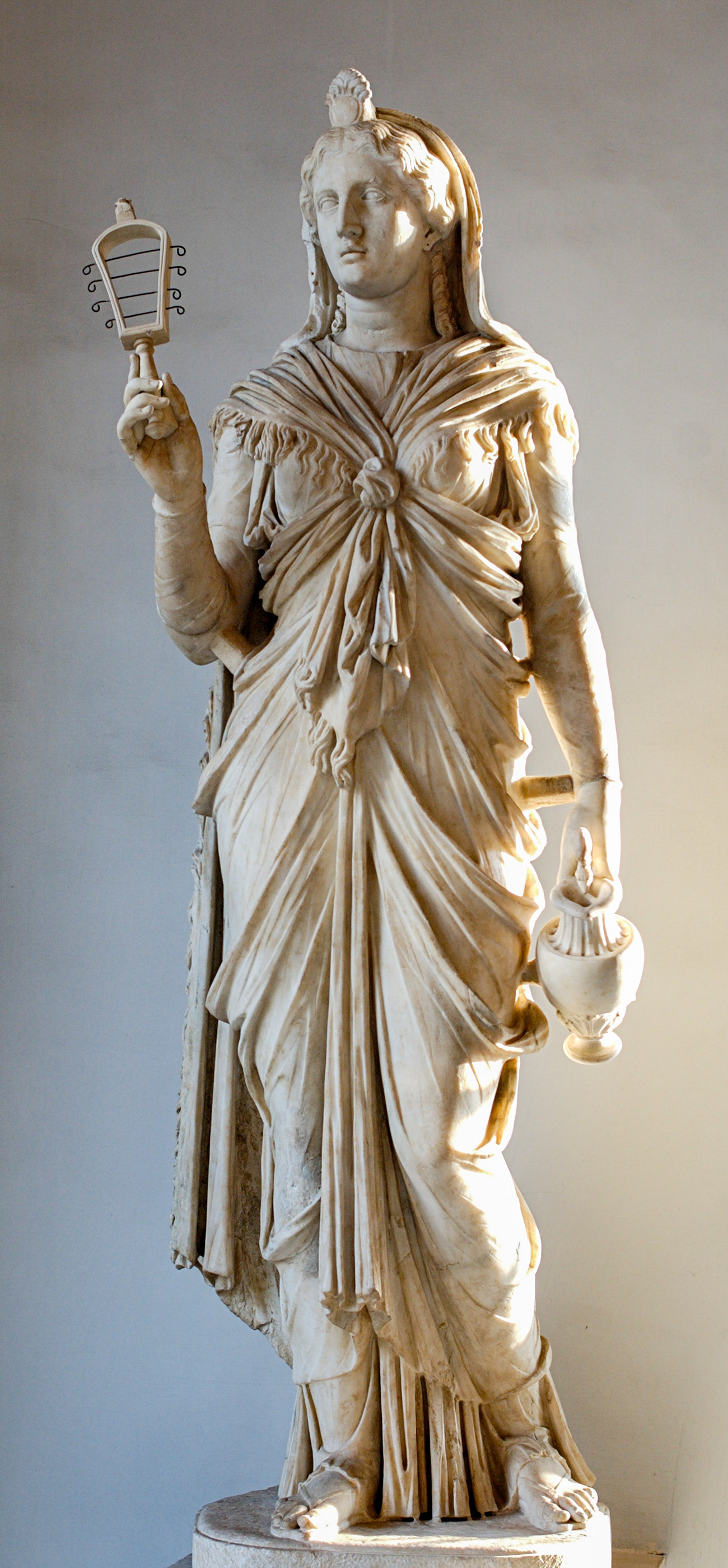|
Wiccan Rede
The Wiccan Rede is a statement that provides the key moral system in the neopagan religion of Wicca and certain other related witchcraft-based faiths. A common form of the Rede is ''An ye harm none, do what ye will'' which was taken from a longer poem also titled the Wiccan Rede. The word "rede" derives from Middle English, meaning "advice" or "counsel", and being closely related to the German or Scandinavian . "An'" is an archaic Middle English conjunction, meaning "if." " Ye" is an archaic or dialectal form of "you" (nominative plural). History In its best known form as the "eight words" couplet, the Rede was first publicly recorded in a 1964 speech by Doreen Valiente. Other variants of the Rede include: *''Eight words the Wiccan Rede fulfill, An it harm none do what ye will.'' Note: this is the first published form of the couplet, quoted from Doreen Valiente in 1964. Later published versions include "ye" instead of "it" (as the second word, following 'An'): "Eight words ... [...More Info...] [...Related Items...] OR: [Wikipedia] [Google] [Baidu] |
Neopagan
Modern paganism, also known as contemporary paganism and neopaganism, is a term for a religion or family of religions influenced by the various historical pre-Christian beliefs of pre-modern peoples in Europe and adjacent areas of North Africa and the Near East. Although they share similarities, contemporary pagan movements are diverse, and do not share a single set of beliefs, practices, or texts. Scholars of religion may characterise these traditions as new religious movements. Some academics who study the phenomenon treat it as a movement that is divided into different religions while others characterize it as a single religion of which different pagan faiths are denominations. Because of these different approaches there is disagreement on when or if the term ''pagan'' should be capitalized, though specialists in the field of pagan studies tend towards capitalisation. Prominent modern pagan religions include Wicca, Druidry, Heathenry, Rodnovery, and the Goddess move ... [...More Info...] [...Related Items...] OR: [Wikipedia] [Google] [Baidu] |
Victimless Crime
A victimless crime is an illegal act that typically either directly involves only the perpetrator or occurs between consenting adults. Because it is consensual in nature, whether there involves a victim is a matter of debate. Definitions of victimless crimes vary in different parts of the world and different law systems, but usually include possession of any illegal contraband, recreational drug use, prostitution and prohibited sexual behavior between consenting adults, assisted suicide, and smuggling among other similar infractions. In politics, a lobbyist or an activist might use the term ''victimless crime'' with the implication that the law in question should be abolished. Victimless crimes are, in the harm principle of John Stuart Mill, "victimless" from a position that considers the individual as the sole sovereign, to the exclusion of more abstract bodies such as a community or a state against which criminal offenses may be directed. They may be considered offenses aga ... [...More Info...] [...Related Items...] OR: [Wikipedia] [Google] [Baidu] |
Bible
The Bible (from Koine Greek , , 'the books') is a collection of religious texts or scriptures that are held to be sacred in Christianity, Judaism, Samaritanism, and many other religions. The Bible is an anthologya compilation of texts of a variety of forms originally written in Hebrew, Aramaic, and Koine Greek. These texts include instructions, stories, poetry, and prophecies, among other genres. The collection of materials that are accepted as part of the Bible by a particular religious tradition or community is called a biblical canon. Believers in the Bible generally consider it to be a product of divine inspiration, but the way they understand what that means and interpret the text can vary. The religious texts were compiled by different religious communities into various official collections. The earliest contained the first five books of the Bible. It is called the Torah in Hebrew and the Pentateuch (meaning ''five books'') in Greek; the second oldest part ... [...More Info...] [...Related Items...] OR: [Wikipedia] [Google] [Baidu] |
Ten Commandments
The Ten Commandments (Biblical Hebrew עשרת הדברים \ עֲשֶׂרֶת הַדְּבָרִים, ''aséret ha-dvarím'', lit. The Decalogue, The Ten Words, cf. Mishnaic Hebrew עשרת הדיברות \ עֲשֶׂרֶת הַדִּבְּרוֹת, ''aséret ha-dibrót'', lit. The Decalogue, The Ten Words), are a set of biblical principles relating to ethics and worship that play a fundamental role in Judaism and Christianity. The text of the Ten Commandments appears twice in the Hebrew Bible: at Exodus and Deuteronomy . According to the Book of Exodus in the Torah, the Ten Commandments were revealed to Moses at Mount Sinai and inscribed by the finger of God on two tablets of stone kept in the Ark of the Covenant. Scholars disagree about when the Ten Commandments were written and by whom, with some modern scholars suggesting that they were likely modeled on Hittite and Mesopotamian laws and treaties. Terminology The Ten Commandments, called ( transliterated ) in ... [...More Info...] [...Related Items...] OR: [Wikipedia] [Google] [Baidu] |
Charge Of The Goddess
The Charge of the Goddess (or Charge of the Star Goddess) is an inspirational text often used in the neopagan religion of Wicca. The Charge of the Goddess is recited during most rituals in which the Wiccan priest/priestess is expected to represent, and/or embody, the Goddess within the sacred circle, and is often spoken by the High Priest/Priestess after the ritual of Drawing Down the Moon. The Charge is the promise of the Goddess (who is embodied by the high priestess) to all witches that she will teach and guide them. It has been called "perhaps the most important single theological document in the neo-Pagan movement". It is used not only in Wicca, but as part of the foundational documents of the Reclaiming tradition of witchcraft co-founded by Starhawk. Several versions of the Charge exist, though they all have the same basic premise, that of a set of instructions given by the Great Goddess to her worshippers. The earliest version is that compiled by Gerald Gardner. This versio ... [...More Info...] [...Related Items...] OR: [Wikipedia] [Google] [Baidu] |
Gardnerian Wicca
Gardnerian Wicca, or Gardnerian witchcraft, is a tradition in the neopagan religion of Wicca, whose members can trace initiatory descent from Gerald Gardner. The tradition is itself named after Gardner (1884–1964), a British civil servant and amateur scholar of magic. The term "Gardnerian" was probably coined by the founder of Cochranian Witchcraft, Robert Cochrane in the 1950s or 60s, who himself left that tradition to found his own. Gardner claimed to have learned the beliefs and practices that would later become known as Gardnerian Wicca from the New Forest coven, who allegedly initiated him into their ranks in 1939. For this reason, Gardnerian Wicca is usually considered to be the earliest created tradition of Wicca, from which most subsequent Wiccan traditions are derived. From the supposed New Forest coven, Gardner formed his own Bricket Wood coven, and in turn initiated many Witches, including a series of High Priestesses, founding further covens and continuing ... [...More Info...] [...Related Items...] OR: [Wikipedia] [Google] [Baidu] |
Consequentialism
In ethical philosophy, consequentialism is a class of normative, teleological ethical theories that holds that the consequences of one's conduct are the ultimate basis for judgment about the rightness or wrongness of that conduct. Thus, from a consequentialist standpoint, a morally right act (or omission from acting) is one that will produce a good outcome. Consequentialism, along with eudaimonism, falls under the broader category of teleological ethics, a group of views which claim that the moral value of any act consists in its tendency to produce things of intrinsic value.Teleological Ethics " '' Encyclopedia of Philosophy''. via '' |
Hereditary Witch
Heredity, also called inheritance or biological inheritance, is the passing on of traits from parents to their offspring; either through asexual reproduction or sexual reproduction, the offspring cells or organisms acquire the genetic information of their parents. Through heredity, variations between individuals can accumulate and cause species to evolve by natural selection. The study of heredity in biology is genetics. Overview In humans, eye color is an example of an inherited characteristic: an individual might inherit the "brown-eye trait" from one of the parents. Inherited traits are controlled by genes and the complete set of genes within an organism's genome is called its genotype. The complete set of observable traits of the structure and behavior of an organism is called its phenotype. These traits arise from the interaction of its genotype with the environment. As a result, many aspects of an organism's phenotype are not inherited. For example, suntanned sk ... [...More Info...] [...Related Items...] OR: [Wikipedia] [Google] [Baidu] |
Gerald Gardner
Gerald Brosseau Gardner (13 June 1884 – 12 February 1964), also known by the craft name Scire, was an English Wiccan, as well as an author and an amateur anthropology, anthropologist and archaeology, archaeologist. He was instrumental in bringing the Modern Paganism, Contemporary Pagan religion of Wicca to public attention, writing some of its definitive religious texts and founding the tradition of Gardnerian Wicca. Born into an upper-middle-class family in Blundellsands, Lancashire, Gardner spent much of his childhood abroad in Madeira. In 1900, he moved to colonial Ceylon, and then in 1911 to British Malaya, Malaya, where he worked as a civil servant, independently developing an interest in the native peoples and writing papers and a book about their magical practices. After his retirement in 1936, he travelled to Cyprus, penning the novel ''A Goddess Arrives'' before returning to England. Settling down near the New Forest, he joined an occultism, occult group, the Rosicr ... [...More Info...] [...Related Items...] OR: [Wikipedia] [Google] [Baidu] |
Donald H
Donald is a masculine given name derived from the Gaelic name ''Dòmhnall''.. This comes from the Proto-Celtic *''Dumno-ualos'' ("world-ruler" or "world-wielder"). The final -''d'' in ''Donald'' is partly derived from a misinterpretation of the Gaelic pronunciation by English speakers, and partly associated with the spelling of similar-sounding Germanic names, such as ''Ronald''. A short form of ''Donald'' is '' Don''. Pet forms of ''Donald'' include ''Donnie'' and ''Donny''. The feminine given name ''Donella'' is derived from ''Donald''. ''Donald'' has cognates in other Celtic languages: Modern Irish ''Dónal'' (anglicised as ''Donal'' and ''Donall'');. Scottish Gaelic ''Dòmhnall'', ''Domhnull'' and ''Dòmhnull''; Welsh '' Dyfnwal'' and Cumbric ''Dumnagual''. Although the feminine given name ''Donna'' is sometimes used as a feminine form of ''Donald'', the names are not etymologically related. Variations Kings and noblemen Domnall or Domhnall is the name of many anc ... [...More Info...] [...Related Items...] OR: [Wikipedia] [Google] [Baidu] |
Adriana Porter
Adriana Porter (July 1857 – March 1, 1946) was an alleged witch. She was born in Nova Scotia, Canada, and died in Melrose, Massachusetts, United States. Porter's notability rests on a poem, '' The Rede of the Wiccae'', which was published by her granddaughter Lady Gwen Thompson in ''Green Egg'' magazine in 1975 and attributed to her. It has become a semi-sacred text within the culture of Wicca. Thompson claimed that she had inherited her Wiccan beliefs and practices from Porter, who had summarized them in the poem. If this were true, it would confirm that the hidden practices of witchcraft articulated by Gerald Gardner Gerald Brosseau Gardner (13 June 1884 – 12 February 1964), also known by the craft name Scire, was an English Wiccan, as well as an author and an amateur anthropology, anthropologist and archaeology, archaeologist. He was instrumental in bri ... in his books existed in independent traditions, uninfluenced by his writings. The true authorship of the poem ... [...More Info...] [...Related Items...] OR: [Wikipedia] [Google] [Baidu] |

.jpg)




